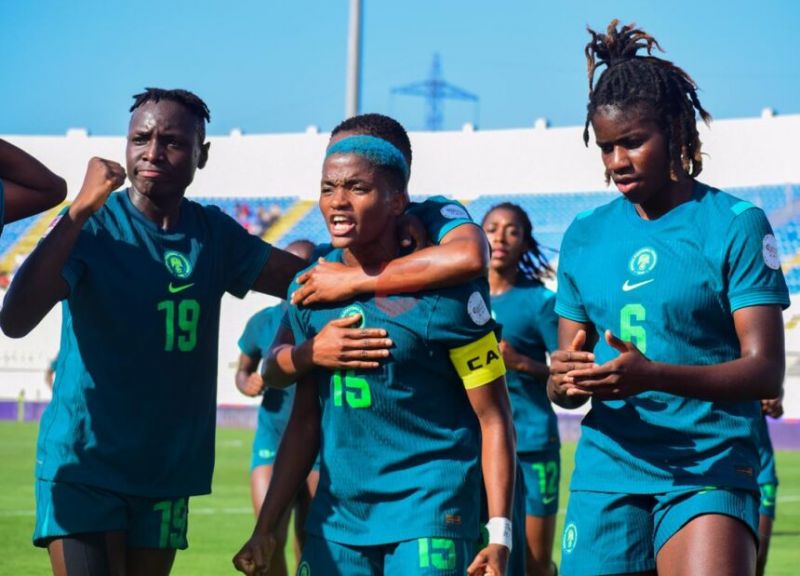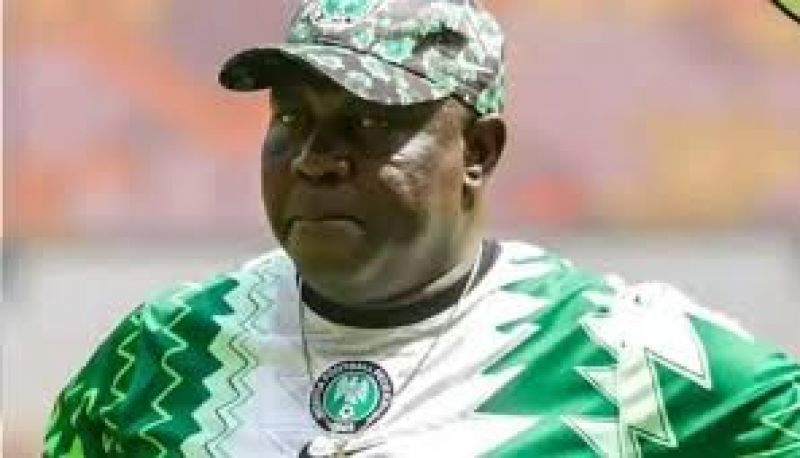By Daily Sports on February 13, 2018

I recently read something in the papers that both troubled and impressed me. It was about the efforts of Newcastle FC of the English Premier League – its players and fans – to fight poverty in the impoverished parts of Newcastle. The club, through its supporters and Star players are currently involved in an aggressive initiative to help feed people who are struggling to find food to survive in the Newcastle area. They are making handsome contributions to food banks, so that people can find a place to come and fill their stomachs when hunger threatens.
It is troubling that even in a developed country like England where millions from Africa and Asia are struggling, in a do or die race, to enter as economic migrants, there’s a sizeable population there already who can’t even get easily the basic succor of food to eat.
It's not only in Newcastle that food banks are increasingly being needed. In other cities and communities of England as well, the scary hand of hunger stretches out to scare and to kill. And other clubs, whose players and coaching staff are well to do are rallying round to meet the challenge of showing their compassionate spirit to people in need.
One player who is particularly struck by the poverty is Isaac Hayden, a strong defensive midfielder of Newcastle. Alongside his club and its supporters, Hayden helps to underwrite the West End food bank in Benwell, Newcastle, which has become the biggest food bank in the UK.
“It’s crazy.... we’ve got these massive mansions, yet a few miles up the road people are queueing for food?” Hayden says.
Everton is a relatively wealthy English Premier League club, but the area around the Goodison Park home of the club is beset with poverty. Data shows that 42% of the population leave beneath the poverty line. The club’s manager Sam Allardyce is a leading figure in making contributions to the food banks around the place. He is appalled by the grim situation. “It’s extremely depressing. People in work can’t afford to live at a decent level and have to go to food banks to feed themselves and their children. It’s incredibly sad that a country like ours has allowed that to happen. It’s going back to the dark ages. It’s a disgrace,” Allardyce says.
According to the UK Guardian newspaper, “Bournemouth (another Premier League club) and their supporters have recently answered an appeal from their local food bank and organised supermarket trolley collections at home games. ‘It’s absolutely fantastic to have the club involved,’ says Ed Briggs, warehouse manager at Bournemouth food bank. ‘We distribute to six different sites, mainly churches. In the last financial year, we fed almost 5,000 local people in crisis and demand is increasing’.”
These acts of altruism are impressive, even if the suffering that occasion them are unfortunate. More unfortunate is the fact that in lesser developed countries of the world, where super rich people have emerged from the shackles of biting poverty, there doesn’t seem to be similar aggressive efforts on the parts of successful sportsmen to combat hunger.
This brings my thoughts to Nigeria and her band of professional players plying their trade in foreign countries. Is it not possible for super rich Nigerian professional footballers to rally behind such causes, or be the brains behind the setting up of causes, to help alleviate the scourge of hunger in their fatherland?
Many times, these players come home to play football when they are on break from their clubs. They see hungry faces of fans who troop out to watch their heroes in primary school fields; the all too familiar faces of hunger and despair they knew very well from their times in the grassroots while they themselves were struggling to make a headway in life.
I know the response of some reading this may be “why should the players be the ones to bear the burden of bad governance? Of what benefit is it to the players? And can they really do anything significant to solve deep rooted social problems?” These are legitimate questions to ask. But my response is simply that there’s a pleasure in doing good and a bigger pleasure in sparking off unique positive social changes.
Last year, Man United player Juan Mata launched his One Goal project which sees him giving one percent of his salary to charities with a long term aim of unlocking 1% of the entire football industry’s revenues for grassroots football charities that strengthen their communities through sport. A number of players and coaches have signed up to the program and charities from India to Columbia are already benefiting from the generosity of these kindhearted individuals as they make impacts in the lives of ordinary individuals.
Nigerian professional player can surely emulate these acts of kindness shown by their peers in world football and make more direct philanthropic contributions to their local Nigerian societies. A healthy Nigeria will benefit these players because a settled home can only be a good thing.
Source Daily Sports
Posted February 13, 2018
You may also like...

MFM Set To Battle Rangers In Lagos +...

Pochettino, Allegri Under Consideration At Inter Milan

Rangers battle FC Ifeanyi Ubah in Wednesday's Super...

Brighton Stun Liverpool At Anfield

Fatai Amoo To Head Golden Eaglet Crew

Arsenal Up Against Man City, Liverpool Face Chelsea...

 Osimhen rallies Gala teammates for Super Lig, UCL run-in
Osimhen rallies Gala teammates for Super Lig, UCL run-in Super Falcons regroup for Cameroon double-header
Super Falcons regroup for Cameroon double-header Ibadan to host FASU Afro-Varsity 3×3 Basketball Challenge
Ibadan to host FASU Afro-Varsity 3×3 Basketball Challenge Family seeks N20m ransom as Oyo govt probes player’s kidnap
Family seeks N20m ransom as Oyo govt probes player’s kidnap Cameroon friendly to shape WAFCON squad — Madugu
Cameroon friendly to shape WAFCON squad — Madugu Fury sends Joshua support, turns down bout after tragedy
Fury sends Joshua support, turns down bout after tragedy Wolves secure rare win to dent Villa’s bid for Champions League place
Wolves secure rare win to dent Villa’s bid for Champions League place Solaja re-emerges BFN South East rep
Solaja re-emerges BFN South East rep Usman makes welterweight title claim
Usman makes welterweight title claim I cried day I got Super Eagles call-up – Fago
I cried day I got Super Eagles call-up – Fago Osimhen strikes down stubborn Juve to book round 16 spot
Osimhen strikes down stubborn Juve to book round 16 spot Ogazi wins SEC Scholar-Athlete of the Year
Ogazi wins SEC Scholar-Athlete of the Year Rangers International going, going . . . (63,587 views)
Rangers International going, going . . . (63,587 views) Amaju Pinnick: A cat with nine lives (54,900 views)
Amaju Pinnick: A cat with nine lives (54,900 views) Second Term: Amaju Pinnick, Other NFF Heavyweights Home to Roost •How Pinnick Broke the Jinx (52,814 views)
Second Term: Amaju Pinnick, Other NFF Heavyweights Home to Roost •How Pinnick Broke the Jinx (52,814 views) Current issues in Nigerian sports: Matters arising (52,439 views)
Current issues in Nigerian sports: Matters arising (52,439 views) Sports Development: Zenith Bank on the zenith (52,352 views)
Sports Development: Zenith Bank on the zenith (52,352 views) Missing $150,000 IAAF Grant: Solomon Dalung’s Hide and Seek game (52,268 views)
Missing $150,000 IAAF Grant: Solomon Dalung’s Hide and Seek game (52,268 views) Gov. Abdullahi Ganduje’s solid footprints, commitment to sports development in Kano State (52,144 views)
Gov. Abdullahi Ganduje’s solid footprints, commitment to sports development in Kano State (52,144 views) NFF Presidency: Pinnick, Maigari, Ogunjobi, Okoye in Battle for Supremacy (51,687 views)
NFF Presidency: Pinnick, Maigari, Ogunjobi, Okoye in Battle for Supremacy (51,687 views) Olopade, BET9A wave of revolution in NNL (50,860 views)
Olopade, BET9A wave of revolution in NNL (50,860 views) Commonwealth Games 2018: Shame of Muhammadu Buhari, Solomon Dalung (49,383 views)
Commonwealth Games 2018: Shame of Muhammadu Buhari, Solomon Dalung (49,383 views) Ibrahimovic’s Man U exit: Whose decision is it? And in whose interest? (47,771 views)
Ibrahimovic’s Man U exit: Whose decision is it? And in whose interest? (47,771 views) John Mikel Obi: Segun Odegbami’s Outrageous Call! (47,248 views)
John Mikel Obi: Segun Odegbami’s Outrageous Call! (47,248 views)